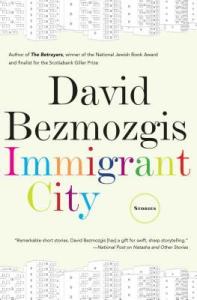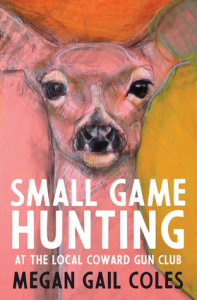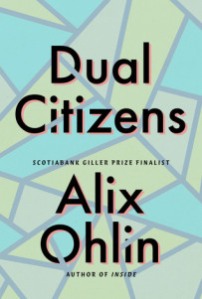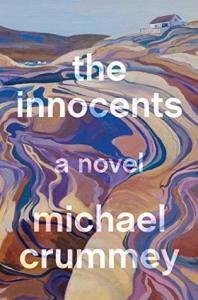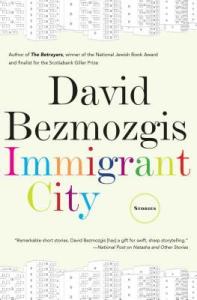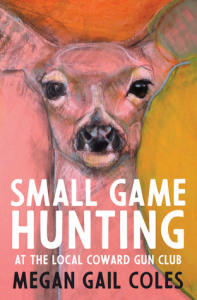It was an unusual year for us shadow jurors – with only two of us reading and reviewing the books – so we went about our deliberations a little differently. Marcie and I revealed our top two books (of the six on the shortlist), and Alison (who has read four of the six books) joined in our discussion.
We are thrilled to announce that this year (and in the spirit of the Booker) we have a tie!
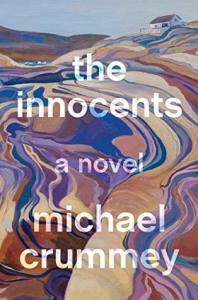
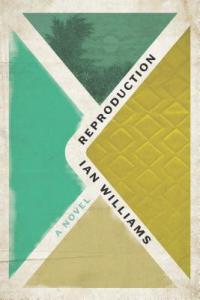
Congratulations to Michael Crummey (Doubleday Canada) and Ian Williams (Random House Canada)!
Jury Citation for The Innocents: “Written in a language that is at the same time fresh and ancient, Michael Crummey’s The Innocents is a (mis)creation myth that demands a reconsideration of what we think we know about love and death, family and loneliness, oblivion and wisdom, horror and beauty, bodies and knowledge, violence and desire. Anchored in exquisite specificity and heartbreaking simplicity, and inviting us into a distant past that makes fresh matters of ever-present concern about survival and sacrifice, Crummey’s novel has the capacity to change the way the reader sees the world.”
Jury Citation for Reproduction: “Ian Williams’s Reproduction is many things at once. It’s an engrossing story of disparate people brought together and also a masterful unfolding of unexpected connections and collisions between and across lives otherwise separated by race, class, gender and geography. It’s a pointed and often playful plotting out of individual and shared stories in the close spaces of hospital rooms, garages, mansions and apartments, and a symphonic performance of resonant and dissonant voices, those of persons wanting to impress persuade, deny, or beguile others, and always trying again.”
Our thoughts on The Innocents…
Alison: “It’s a brave and beautiful book.”
Marcie: “Michael Crummey is a favourite writer of mine. There are a lot of qualities I admire in his novel and I wouldn’t be sorry to see it take the prize. In terms of story and language, it’s outstanding. Also, I have a soft spot for fiction which emerges from history. And apparently this story was pulled from the history books. I also have a predilection towards stories about the forgotten and overlooked, and The Innocents reminds me how often stories of the powerless are relegated to the margins. Some might feel that this work does not represent a diverse choice, but the story of these two children is not an oft-told tale: it is, nonetheless, an archetypal tale, too. It’s an engaging story about how fragile we are, as human beings, and how tragic circumstances can be devastating but also empowering: these children are victims in one sense but are valiant in every other sense.”
Naomi: “I was mesmerized by Crummey’s use of language throughout the book. In addition, he took a sensitive subject (that even he admitted to not wanting to touch) and turned it into a tender story of survival that is successful at eliciting feelings of compassion and sympathy for its characters and their circumstances.”
Our thoughts on Reproduction…
Marcie: “For me, Reproduction scratches every literary itch I have: it leaves me satisfied after just a single reading and, simultaneously, yearning to reread, with an awareness that there are still many echoes and layers that I likely missed along the way. The way that the theme resonates throughout the novel tickles my reader’s fancy; I enjoy puzzling out the ways that habits and attachments, mistakes and fractures reproduce in the narrative. One aspect that I particularly admire is the way that the novel thickens as the pages accumulate; across the generations, the human patterns intersect and loop in different directions, until it’s all a blur of loving and losing. And even though absences overshadow presences at times, bonds remain and you’re left to imagine the ways in which these characters’ stories will continue to reproduce after the last page has been turned.”
Naomi: “The thought and creativity that went into this book amazes me. Not only do we get an engaging story with strong characters, we also get an interesting and playful structure (whether you choose to pay attention to it or not).”
Now we wait to see what the real Giller Prize jury has to say. They will name their official winner tonight (Monday, November 18th)! For specific timings, please visit the official website.
What do you think of our choice(s)? How do you feel about the tie? Which book would you choose?
You can find the review links to all the shortlisted books here!
We have also done some longlist reading. Here’s where you can find our reviews:
Days By Moonlight by André Alexis – Consumed by Ink and Buried in Print
Dream Sequence by Adam Foulds – Consumed by Ink
Late Breaking by K.D. Miller – Consumed by Ink
Frying Plantain by Zalika Reid-Benta – Consumed by Ink
Greenwood by Michael Christie – coming soon to Buried in Print
The Testaments by Margaret Atwood – coming soon to Buried in Print




